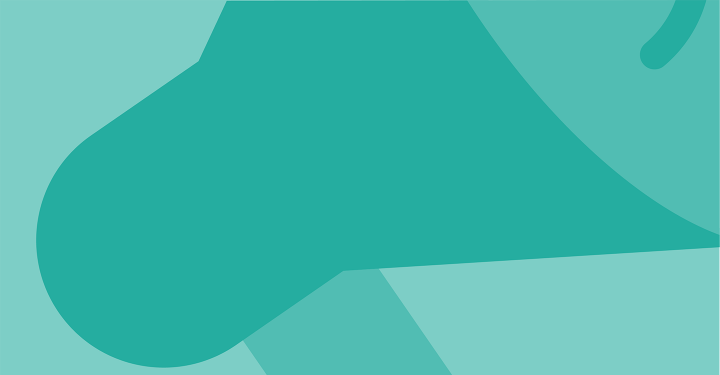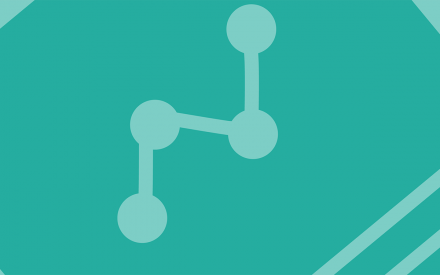Two articles were recently published which focus on the issue of defensive medicine – one from the USA, one from Denmark. Although the contexts are different, the conclusions the authors reach are very similar, namely, system and cultural factors contribute to the practice of defensive medicine
These articles also reflect the message we see in the media, i.e. doctors feel they are pressured to practice defensive medicine.
In a recent article in Altinget(1) titled ‘Krisen skal bane vejen for mindre defensiv medicin i sundhedssystemet’ (‘The crisis must pave the way for less defensive medicine in the health care system’), Dr Christina Frøslev-Friis describes how the experience of delivering care during the COVID-19 crisis highlighted the potential for new and better ways of working. In particular:
“Åbenhed om fejl skabte tryghed og handlekraft”
(“openness to failure, created psychological safety and the power to act”)
This is a powerful statement, and one which contrasts sharply with the messages we typically hear from healthcare professionals in the media. For example, in an interview with Lise Møller (a member of the board of the Medical Association) in Dagens Medicin (2) from early February (before the COVID-19 crisis):
“Jeg tror, at læger bliver bange over denne [meningitis] sag. Den er ikke lige så principiel som Svendborgsagen, men et eksempel på, at systemet kører den hårde linie og ikke tager læringsaspektet ind. Disse sager er med til at gøre, at læger udøver mere defensiv medicin.”
(“I think doctors are scared about this [meningitis] case. It is … an example of the system taking the hard line and not taking in the learning aspect. These cases help to make doctors practice more defensive medicine.”)
However, in the same article Møller goes on to say:
“Vi vil hellere have en kultur, hvor man er åben over for sine fejl og er mindre utryg, når man har lavet en fejl”
(“We would rather have a culture where you are open to your mistakes and are less insecure when you have made a mistake”)
These two examples provide a flavour for how physicians perceive the drivers of their current practice, which contrasts with their ideal practice.
To act – or not to act?
The issue of defensive medicine is not new, it is a term that has been used in the medical research literature since the 1960’s(3) . In Denmark it is possible to find articles from over ten years ago which highlight the potential damage that defensive medicine can have ‘on the foundation of the Danish health care system by undermining its economy and harming patients’ (4).
However, what struck me about the comments by Dr Christina Frøslev-Friis was the apparent paradox regarding ‘the power to act’ and the practice of defensive medicine (which could be defined as ‘the power to over-act’, i.e. ordering extra diagnostic tests, procedures or interventions). What I found striking was that for her, ‘the power to act’ in this sense, was the power not to act.
This paradox has been explored in an article published recently in the Journal of Law-Medicine. ‘The Paradoxes of Defensive Medicine’ (5) by Michael Saks and Stephen Landsman primarily presents an American law and legal policy perspective, however the implications are relevant for healthcare economics and patient safety everywhere.
Drawing upon stories and comments from people such as Don Berwick and Atul Gawande, the paper provides clear and simple explanations of some challenging concepts in relation to defensive medicine such as ‘healthcare expenditure’ and ‘iatrogenic injuries and deaths’. However, the paper is most fascinating when it focuses on ‘why physicians engage in defensive medicine’ and ‘why would anyone admit to engaging in defensive medicine?’
In terms of the former, the authors write:
“Imagine that you could reduce the chances of your house burning down by (1) spending someone else’s money (for example, your clients’, their insurers’, or the taxpayers’ money), and (2) paying yourself a bonus for taking the trouble to spend those other people’s money. Some or many homeowners would probably do this. For medical malpractice, the analogy proceeds like so: The greater a physician perceives the risk of a malpractice lawsuit to be and the more tests and other procedures that the physician orders, then the more money the physician and the industry get to charge and the more the risk of being sued is reduced. The desirability of that practice, at least for the practitioner, seems beyond debate. Wouldn’t it be crazy not to?”
The authors suggest the psychological mechanism behind this logic is ‘fear of the unknown’, as such, defensive medicine provides the ‘illusion of control’.
Unnecessary and meaningless action
It is one thing to engage in defensive practices, but quite another to admit the deed. Indeed, for a long time, physicians did not admit to practising defensive medicine. Saks & Landsman suggest this changed when malpractice challenges became increasingly common, and then defensive medicine became the case for ‘the defence’. As such, the system contributed to the practice of defensive medicine, and the system became the reason for practising defensive medicine.
Shifting the focus from the US to Europe, an article titled ‘How defensive medicine is defined and understood in European medical literature’ by a group of Danish researchers, presents a protocol for a systematic review of the differences between American and European definitions and understandings related to defensive medicine (6). This group of researchers have previously published a related article focusing on ‘How is defensive medicine is understood and experienced in a primary care setting? A qualitative focus group study among Danish general practitioners’ (7) , as well as a short editorial piece (8) which references a legal case for a Danish doctor and the related social media campaign #DetKuHaVaeretMig (#ItCouldHaveBeenMe) in support of the doctor accused.
The common theme amongst these articles is that doctors:
“understand defensive medicine as an unnecessary and meaningless action driven by external demands instead of a focus on the patient’s problem.”
Moreover, doctors:
“consider defensive actions to be carried out as a result of succumbing to various sources of pressure deriving from the system, the patients, themselves and peers.”
In the years that defensive medicine has been on the radar of Danish healthcare professionals, the issue of defensive medicine has modified to the local context, i.e., less focus on litigation. However, many of the issues and examples from the American healthcare context, as described by Saks and Landsman, echo the themes raised by Danish researchers and practicing physicians speaking in the media, namely that both the system and the culture intertwined contribute to the practice of defensive medicine.
Openness to failure, a sense of psychological safety and the power to act (and not over-act) are indicators of a learning culture. They stand in opposition to a culture of fear and defensive practice. The COVID-19 experience has challenged and stretched the healthcare system, including the people who provide and use healthcare, in many ways. The system has changed in a short time. We must not waste this opportunity, because it has also allowed us to do things differently; sometimes better, sometimes worse, but crucially to be a little more open to failure, and perhaps even, a little less defensive in practice.
NB: The quote in the title comes from Rahm Emanuel (former mayor of Chicago and advisor to Presidents Clinton and Obama) which when heard in full captures the essence of this moment:
“Never allow a good crisis to go to waste. It’s the opportunity to do the things you never thought possible and make them possible” (9).
Fagligt Nyt om patientsikkerhed er et nyhedsbrev, der udgives af PS!, og som udkommer ca. 6 gange årligt. Det formidler nyt om de seneste nationale og internationale forskningsresultater, begivenheder, trends og meninger inden for patientsikkerhed.
Tilmeld dig Fagligt Nyt
References:
- https://www.altinget.dk/sundhed/artikel/laege-her-er-hvad-vi-kan-laere-af-sundhedsvaesenets-succes-mod-corona
- https://dagensmedicin.dk/laege-tiltalt-for-fejlbehandling-straf-giver-ikke-mere-laering-siger-laegeforeningen/
- GuthornPJ. Toward a defensive stance in medical practice. J Med Soc N J1968; 65:548–9. PubMed Google Scholar
- https://dagensmedicin.dk/defensiv-medicin/
- https://scholarlycommons.law.case.edu/healthmatrix/vol30/iss1/4/
- https://pubmed.ncbi.nlm.nih.gov/32114473/
- https://bmjopen.bmj.com/content/10/2/e034300.long
- https://www.tandfonline.com/doi/full/10.1080/02813432.2018.1499483
- https://freakonomics.com/podcast/rahm-emanuel/




